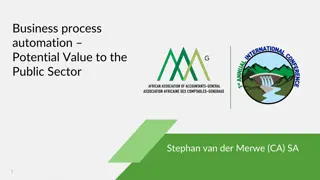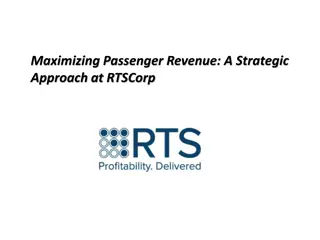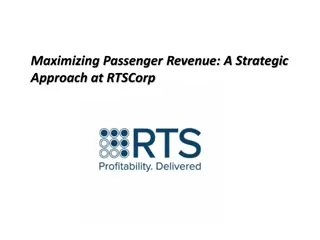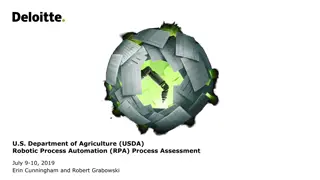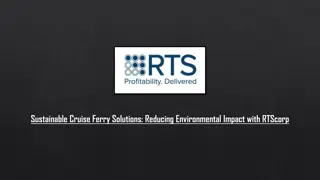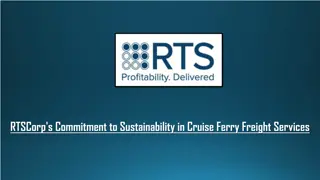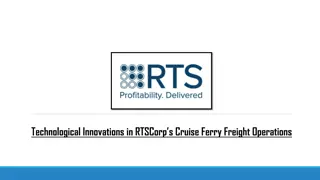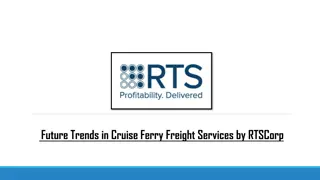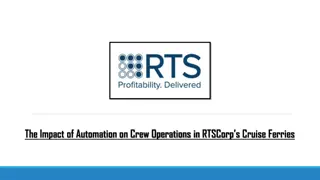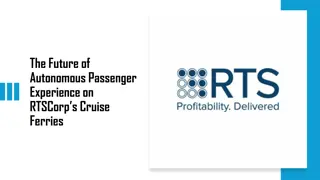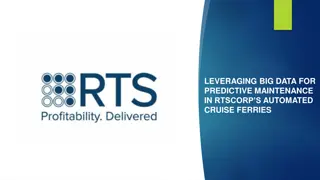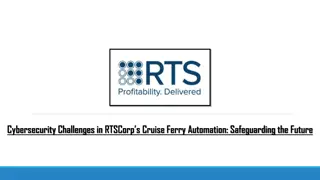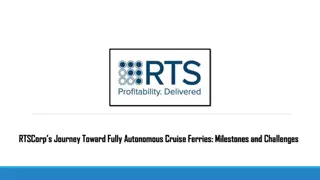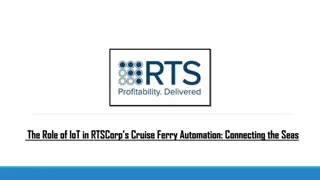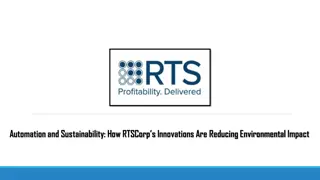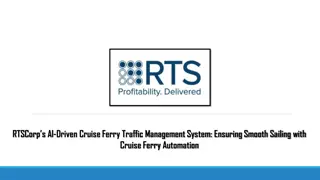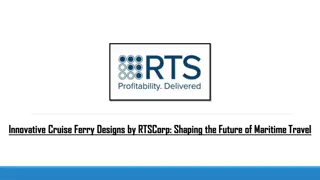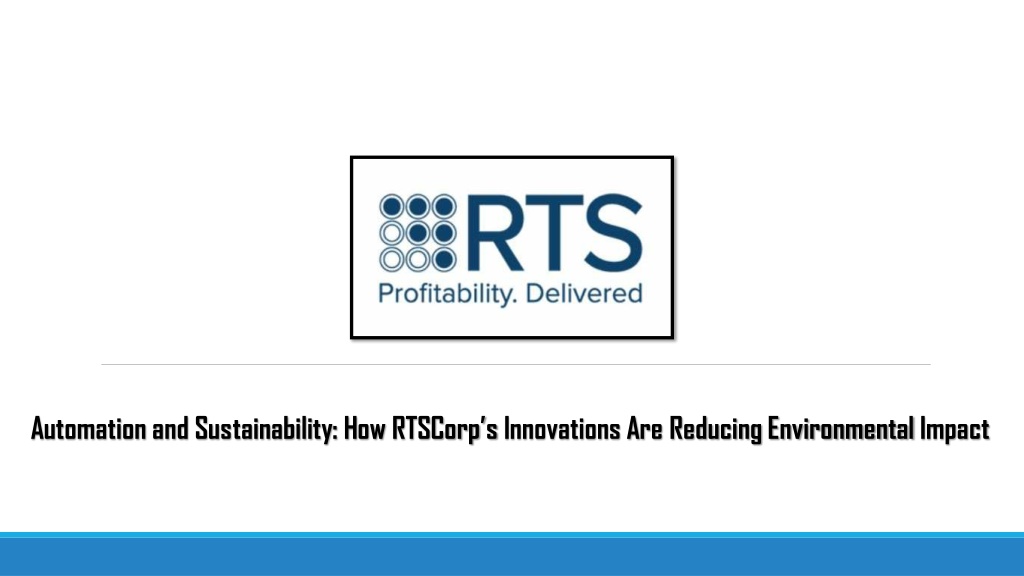
Automation and Sustainability How RTSCorp’s Innovations Are Reducing Environmental Impact
In an era of heightened environmental consciousness, companies across industries are seeking ways to reduce their environmental footprint. RTSCorp, a pioneer in automation, has been at the forefront of this movement. By leveraging cutting-edge techno
Download Presentation

Please find below an Image/Link to download the presentation.
The content on the website is provided AS IS for your information and personal use only. It may not be sold, licensed, or shared on other websites without obtaining consent from the author. Download presentation by click this link. If you encounter any issues during the download, it is possible that the publisher has removed the file from their server.
E N D
Presentation Transcript
Automation and Sustainability: How RTSCorps Innovations Are Reducing Environmental Impact
In an era of heightened environmental consciousness, companies across industries are seeking ways to reduce their environmental footprint. RTSCorp, a pioneer in automation, has been at the forefront of this movement. By leveraging cutting-edge technologies, RTSCorpis developing innovative solutions to promote sustainability, particularly within thecruise ferry automationsector. The company s commitment to both automation and sustainability is transforming the way the maritime industry operates, leading to reduced emissions, energy efficiency, and smarter resource management.
The Environmental Challenge in the Maritime Industry The maritime industry has long been under scrutiny for its environmental impact, particularly with regard to carbon emissions and fuel consumption. Traditional cruise and ferry operations rely heavily on fossil fuels, contributing significantly to global greenhouse gas emissions. Additionally, these vessels often struggle with inefficient fuel management, unnecessary resource consumption, and outdated operational models. This is where automation technologies come into play. Automation is not just about making operations more efficient, but also about optimizing processes in ways that directly support sustainability goals. RTSCorp has recognized this potential, focusing on how automation can reduce waste, lower emissions, and conserve energy in cruise ferry operations.
RTSCorp's Cruise Ferry Automation Innovations RTSCorp sinnovations in cruise ferry automation are reshaping the maritime landscape. By integrating advanced automation systems, they help vessels navigate more efficiently, monitor fuel consumption in real-time, and even automate maintenance processes. These innovations enable cruise ferries to reduce fuel usage and emissions, directly impacting their environmental footprint. One of RTSCorp skey developments is in predictive maintenance, which uses automation to detect equipment issues before they lead to breakdowns or inefficiencies. This not as it were increments the life span of the apparatus but moreover decreases the require for resource-heavy repairs. Predictive maintenance minimizes the use of spare parts, extends the life of ship equipment, and ensures that vessels are operating at optimal efficiency. In addition, RTSCorp sautomation systems improve voyage planning and routing. By analyzing weather conditions, fuel consumption patterns, and operational data, these systems help optimize routes, reducing travel time and fuel consumption. As a result, ships can cut down on their carbon footprint while maintaining or even improving service delivery.
Sustainable Energy Management RTSCorpis also focusing on integrating renewable energy solutions within the framework of its automation systems. Solar and wind energy, when combined with automation technologies, can power cruise ferries more sustainably. Automation ensures these renewable energy sources are utilized efficiently, reducing reliance on traditional, carbon- heavy fuels. For instance, RTSCorp senergy management systems allow ferries to balance between renewable and conventional energy sources based on real-time needs. By dynamically adjusting the energy mix, ships can operate in a more eco- friendly manner without compromising on performance. Future-Proofing the Maritime Industry By focusing on sustainability through cruise ferry automation, RTSCorpis not only responding to today s environmental challenges but also future-proofing the maritime industry. As stricter regulations on emissions and energy usage come into play globally, automation will become an indispensable tool for ship operators. RTSCorp sinnovations position the company as a leader in this transition, helping the industry meet regulatory standards while promoting a greener, more sustainable future.
Conclusion RTSCorp scommitment to cruise ferry automationis driving significant progress in reducing the environmental impact of the maritime industry. By integrating automation into energy management, predictive maintenance, and route optimization, RTSCorpis helping to lower emissions, conserve energy, and enhance operational efficiency. As the world shifts towards sustainability, RTSCorp sinnovations are setting a new standard for the maritime industry, proving that technology and sustainability can go hand in hand.



